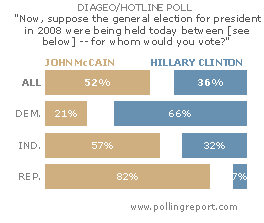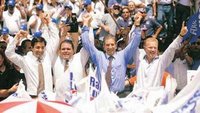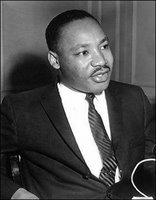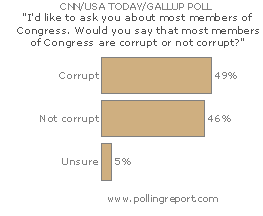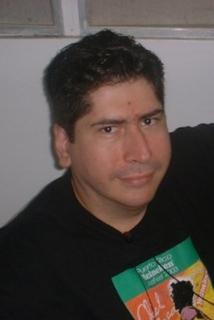State of the Union: A Strong America Leading the World

State of the Union: A Strong America Leading the World
In His State Of The Union Address, President Bush Discussed America's Leadership In The World And Shared His Vision To Lead America Forward. At a time of great consequence, the President laid out an agenda of leadership to act confidently in pursuing the enemies of freedom and to build our prosperity by leading the world economy. The President rejected the roads of isolationism and protectionism and called for cooperation and courage in confronting challenges. America will lead freedom's advance, compete and excel in the global economy, and renew the defining moral commitments of this land, confident of victory.
Leadership Toward Peace In The World
Every Step Toward Freedom In The World Makes Our Country Safer, And So America Will Act Boldly In Freedom's Cause. Today our Nation is committed to an historic, long-term goal: the end of tyranny in our world. On September 11th, 2001, America found that problems originating in a failed and oppressive state seven thousand miles away could bring murder and destruction to our country. Dictatorships shelter terrorists, feed resentment and radicalism, and seek weapons of mass destruction. Democracies replace resentment with hope, respect the rights of their citizens and their neighbors, and join the fight against terror. As we celebrate the spread of freedom in places like Afghanistan and Iraq, we do not forget people living in places like Syria, Burma, Zimbabwe, North Korea, and Iran – because the demands of justice, and the peace of this world, require their freedom as well.
America Will Not Retreat From The World Or Surrender To Evil. In a time of testing, America cannot find security by abandoning commitments and retreating to isolation within our borders. If we were to leave the terrorists alone, they would not leave us alone. They would simply move the battlefield to our own shores. There is no peace or honor in retreat. America rejects the false comfort of isolationism. We accept the call of history to deliver the oppressed and move the world toward peace.
America Is On The Offensive In The War On Terror. America and its allies have killed or captured many of the leaders of the terror networks. For the others, their day will come.
We Remain On The Offensive In Afghanistan. In that country, a fine president and National Assembly are fighting terror while building the institutions of a new democracy.
America Is On The Offensive In Iraq, With A Clear Plan For Victory. First, the Coalition is helping Iraqis build an inclusive government, so that old resentments will be eased and the insurgency will be marginalized. Second, the Coalition is continuing reconstruction efforts and helping the Iraqi government fight corruption and build a modern economy. Third, Coalition forces are striking terrorist targets and training Iraqi forces. In less than three years, Iraq has gone from dictatorship, to liberation, to sovereignty, to a constitution, to national elections.
The Brutality Of The Terrorists Cannot Stop The Dramatic Progress Of A New Democracy. The Coalition has been relentless in shutting off terrorist infiltration, clearing out insurgent strongholds, and turning over territory to Iraqi security forces. As we make progress on the ground, and Iraqi forces increasingly take the lead, we should be able to further decrease our troop levels, but those decisions will be made by our military commanders, not by politicians in Washington, D.C.
Our Strategy For Victory In Iraq Benefits From Responsible Criticism And Counsel. The effort in Iraq has benefited from responsible criticism and counsel offered by Members of Congress of both parties. The President will continue to reach out and seek good advice. Yet there is a difference between responsible criticism that aims for success and defeatism that refuses to acknowledge anything but failure. However individuals feel about the decisions and debates of the past, our Nation has only one option: We must keep our word, defeat our enemies, and stand behind the men and women of America's military in their vital mission.
Progress Will Continue Across The Middle East As America Offers A Hopeful Alternative To Hatred And Fear. America's offensive against terror involves more than military action, and we are delivering a clear message across the broader Middle East. In parts of the Middle East, there have been steps taken toward reform, but there is more progress to be made. Elections are vital – but they are only the beginning. Raising up a democracy requires the rule of law, protection of minorities, and strong, accountable institutions that last longer than a single vote. The Palestinian people have voted in elections – now the leaders of Hamas must recognize Israel, disarm, reject terrorism and work for a lasting peace. Elsewhere in the Middle East, the repressive regime in Iran is defying the world with its nuclear ambitions, and the nations of the world must not permit the Iranian regime to gain nuclear weapons.
As America Encourages The Spread Of Freedom, We Must Also Spread Prosperity. To overcome dangers in our world, America will encourage economic progress, fight disease, and spread hope in hopeless lands. Isolationism would not only tie our hands in fighting enemies, it would keep America from helping our friends in desperate need. America has taken unprecedented action to fight AIDS and malaria, expand the education of girls, and reward developing nations moving forward with economic and political reform. Short-changing these efforts would increase the suffering and chaos of the world, undercut America's long-term security, and dull the conscience of our country.
The Offensive Against Terrorism Must Continue At Home. The enemy has not lost the desire or capability to attack us. America has superb professionals in law enforcement, intelligence, the military, and homeland security who are protecting America. They deserve our thanks – and they deserve the same tools they already use to fight drug trafficking and organized crime, so the President called on Congress to reauthorize the Patriot Act.
Winning The War on Terror Requires Learning The Lessons of September 11th. To prevent another attack – based on authority given to the President by the Constitution and by statute – the President has authorized a terrorist surveillance program to aggressively pursue the international communications of suspected al-Qaida operatives and affiliates to and from America. Previous presidents have used the same constitutional authority the President has – and Federal courts have approved the use of that authority. Appropriate Members of Congress have been kept informed. This terrorist surveillance program has helped prevent terrorist attacks. It remains essential to the security of America. If there are people inside our country who are talking with al-Qaida, we want to know about it – because we will not sit back and wait to be hit again.
Leadership For Prosperity At Home And Abroad
America's Economic Strength Continues To Lead The World. The American economy is healthy and vigorous and growing faster than other major industrialized nations. In the last two and a half years, America has created 4.6 million new jobs – more than Japan and the European Union combined. Even in the face of higher energy prices and natural disasters, the American people have turned in an economic performance that is the envy of the world.
Our Nation Will Compete With Confidence And Extend Our Economic Leadership In The World. In a dynamic world economy, we are seeing new competitors. This creates uncertainty, which makes it easier to feed people's fears. Protectionists want to escape competition, while others want the government to take a larger role in directing the economy. The President set forth a better path that will raise standards of living and generate new jobs. Americans should not fear our economic future, because we intend to shape it.
Congress Needs To Make The Tax Cuts Permanent. Keeping America competitive begins with keeping our economy growing. Our economy grows when Americans have more of their own money to spend, save, and invest. In the last five years, tax relief has left $880 billion in the hands of American workers, investors, small businesses, and families, and they have used it to help produce more than four years of uninterrupted economic growth. Yet the tax relief is set to expire in the next few years. If Congress does not act, American families will face a massive tax increase.
The Growth Of Government Must Be Limited Through Fiscal Discipline. Every year since President Bush took office, the growth of non-security discretionary spending has been reduced, and last year this spending was cut. This year the President's budget will cut it again and will reduce or eliminate more than 140 programs that are performing poorly or not fulfilling essential priorities. By passing these reforms, we will save the American taxpayer another $14 billion next year and stay on track to cut the deficit in half by 2009. Congress must also move forward on earmark reform and pass the line-item veto to limit special interest projects.
The Government Must Confront The Larger Challenge Of Entitlement Spending. The coming retirement of the Baby Boom generation will put unprecedented strains on the Federal government. By 2030, spending for Social Security, Medicare, and Medicaid alone will be almost 60 percent of the entire Federal budget. And that will present future Congresses with impossible choices: staggering tax increases, immense deficits, or deep cuts in every category of spending. The President proposed a bipartisan commission to examine the impact of this problem.
America Must Continue To Open Markets For American Goods. One out of every five factory jobs in America is related to global trade, and we want people everywhere to buy American. With open markets and a level playing field, no one can out-produce or out-compete the American worker.
Immigration Reform Must Be A Priority. America needs an immigration system that upholds our laws, reflects our values, and serves the interests of our economy. Our nation needs orderly and secure borders. To meet this goal, we must have stronger immigration enforcement and border protection. And we must have a rational, humane guest worker program that rejects amnesty, allows temporary jobs for people who seek them legally, and reduces smuggling and crime at the border.
Health Care Must Be Made Affordable And Accessible. Our government has a responsibility to help provide health care for the poor and the elderly, and it will meet that responsibility. For all Americans, we must confront the rising cost of care, strengthen the doctor-patient relationship, and help people afford the insurance coverage they need.
Improved Health Savings Accounts Will Offer Lower Costs And Security Between Jobs. The President proposed strengthening Health Savings Accounts by making sure individuals and small business employees can buy insurance with the same tax advantages that people working for big businesses now get. We will do more to make this coverage portable, so workers can switch jobs without having to worry about losing their health insurance.
Technology Offers The Possibility Of More Effective, Less Expensive Health Care. The President called for wider use of electronic records and other health information technology to help control costs and reduce medical errors.
Medical Liability Reform Will Help Retain Good Doctors. The President called on Congress to pass Medical Liability Reform this year. Lawsuits are driving many good doctors out of practice, leaving women in nearly 1500 American counties without a single OB-GYN.
The Advanced Energy Initiative Will Help Break America's Dependence On Foreign Sources Of Energy. The best way to break America’s addiction to oil is through technology. The President set a goal of replacing more than 75 percent of oil imports from the Middle East by 2025. Since 2001, we have spent nearly $10 billion to develop cleaner, cheaper, more reliable alternative energy sources. The Advanced Energy Initiative will deliver a 22 percent increase in clean-energy research to push for breakthroughs in two vital areas:
New Energy Sources For Homes And Businesses. To change how we power our homes and offices, we will invest more in zero-emission coal-fired plants; revolutionary solar and wind technologies; and clean, safe nuclear energy.
New Energy Sources For Transportation. We must also change how we power our automobiles and move beyond a petroleum-based economy. We will increase our research in better batteries for hybrid and electric cars and in pollution-free cars that run on hydrogen. We will also fund additional research in cutting-edge methods of producing ethanol, not just from corn but from wood chips, stalks, or switch grass. The goal is to make this new kind of ethanol practical and competitive within six years.
The President's American Competitiveness Initiative Will Encourage Innovation Throughout The Economy. America must continue to lead the world in human talent and creativity. Our greatest advantage in the world has always been our educated, hard-working, ambitious people, and we are going to keep that edge.
New Federal Funding For Research. The President proposed doubling the Federal commitment to the most critical basic research in the physical sciences over the next ten years. This will support the work of America's most creative minds as they explore promising areas such as nanotechnology, supercomputing, and alternative energy sources.
Provide Tax Certainty For Research And Development. The President proposed making permanent the research and development tax credit to encourage bolder private-sector investment in technology. With more research in both the public and private sectors, we will improve our quality of life and ensure that America will lead the world in opportunity and innovation for decades to come.
Strengthening Education In Math And Science. Building on the success of the No Child Left Behind Act, the President proposed training 70,000 high school teachers to lead advanced-placement courses in math and science; bringing 30,000 math and science professionals to teach in classrooms; and getting early help to students struggling with math so they have a better chance at good, high-wage jobs.
America Is Becoming A More Hopeful Nation. Violent crime rates have fallen to their lowest levels since the 1970s. Welfare cases have dropped by more than half over the past decade. Drug abuse among youth is down 19 percent since 2001. There are fewer abortions in America than at any point in the last three decades, and the number of children born to teenage mothers has been falling for a dozen years in a row. Government has played a role in this quiet transformation, and wise policies such as welfare reform, drug education, and support for abstinence and adoption have made a difference in the character of our country.
America Still Has More To Do To Strengthen Our Culture And Our Institutions. Many Americans, especially parents, still have deep concerns about the direction of our culture and the health of our most basic institutions. They are concerned about unethical conduct by public officials and discouraged by activist courts that try to redefine marriage. And they worry about children in need, fellow citizens still displaced by natural disaster, and suffering caused by treatable disease.
Courts Must Deliver Equal Justice Under Law And Not Legislate From The Bench. The Senate has confirmed two superb new members of the Supreme Court, Chief Justice John Roberts and Justice Samuel Alito. The President will continue to nominate men and women who understand that judges must be servants of the law and not legislate from the bench.
America Must Recognize The Value Of Every Life. The President called on Congress to pass legislation to prohibit the most egregious abuses of medical research: cloning human beings; creating or implanting embryos for experiments; creating human-animal hybrids; and buying, selling, or patenting human embryos. Human life is a gift from our Creator, and that gift should never be discarded, devalued, or put up for sale.
Elected Officials Must Uphold The Public Trust. The President supports the efforts of honorable people in both parties who are working on reforms to strengthen the ethical standards of Washington. Public servants make a pledge to be worthy of public responsibility, and that is a pledge that must never be forgotten, dismissed, or betrayed.
America Must Protect And Encourage Its Children. Through the Helping America's Youth initiative led by First Lady Laura Bush, America is encouraging caring adults to get involved in the life of a child. The President called for additional resources to encourage young people to stay in school so more of America's youth can raise their sights and achieve their dreams.
A Continuing Commitment To Gulf Reconstruction. America will aid our fellow citizens in times of suffering and emergency and stay with them until they are back on their feet. So far the Federal government has committed $85 billion to the people of the Gulf Coast and New Orleans. We are removing debris, repairing highways, building stronger levees, and providing business loans and housing assistance. We must also address deeper challenges that existed before the storm arrived and must provide not only temporary relief, but also schools that teach every child, job skills that bring upward mobility, and more opportunities to own a home and start a business.
Continuing The Fight To Prevent, Treat, And Defeat HIV/AIDS. The President called on Congress to reform and reauthorize the Ryan White Act and to provide new funding to states, so we end the waiting lists for AIDS medicine in America. More than one million Americans live with HIV, and half of all AIDS cases occur among African-Americans. The President called for a nationwide effort, working closely with African-American churches and faith-based groups, to deliver rapid HIV tests to millions, end the stigma of AIDS, and come closer to the day when there are no new infections in America.


